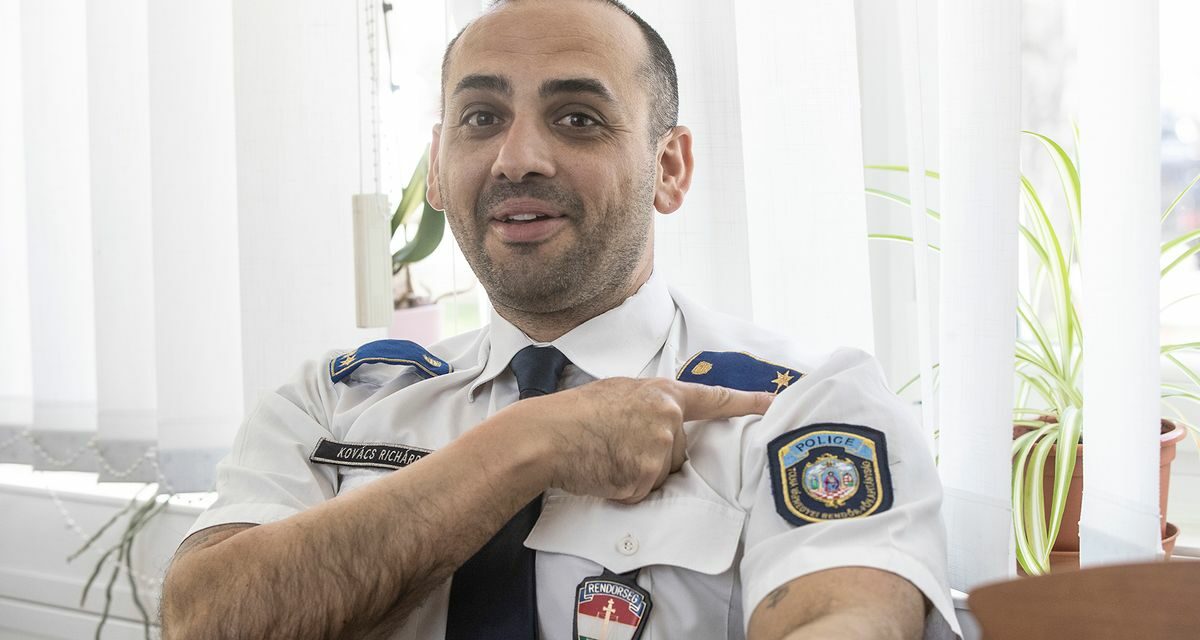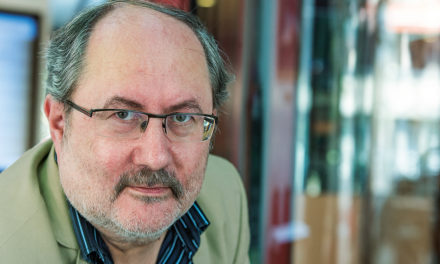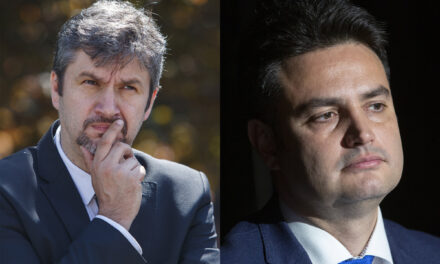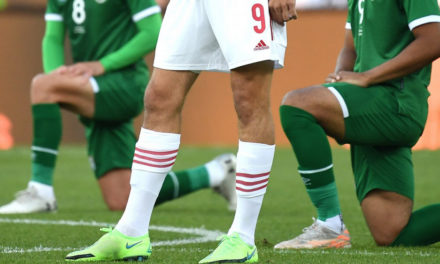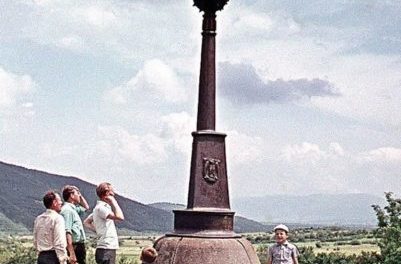This year, the Golden Ribbon award for the ordinary Roma hero of the year was given to police chief lieutenant Richárd Kovács, who, in addition to working, is studying Romaology as a second degree student while preparing for his law doctorate. All of this is remarkable in the light of the environment from which he managed to stand out on his own.
- In the press, the pol-correct colleagues compulsively only use the name Roma. Am I offending you by using the word gypsy in relation to you?
- Not at all, and I have no objection to the names used in other languages (cigojner, gypsy, gytánó). I'm about to take a state exam in romology, and I'd be in trouble if I couldn't use synonyms because of word repetition. In everyday speech, I myself use the word gypsy.
– Now we are talking about the Golden Belt award given by the Roma Press Center. How and why did you get it?
– My former university teacher recommended me for the award. Out of the two hundred candidates, the jury selected the ten most deserving, and among them, the many thousands of votes received on the social portal determined who should be the first.
– You can't rank between simple life paths!
- I said in my acceptance speech at the gala held at the Budapest Jazz Club that I think anyone of my competitors could have justifiably received it based on their own values. I was most surprised that the will of the public finally honored me, a cop. It was a pleasant disappointment to experience that a policeman can be so popular in Hungary.
- However, his personality could also have a say in the decision. In its press material, the Roma Press Center presented you as having earned a special prize in the Scientific Student Circle for your paper "Ethnic profiling during police measures", you won the Mr. Policeman title for bodybuilding several times, and you returned home with several medals from the World Police and Fire Games held in the United States. too.
– These things have happened to me, but if I really want to brag, I'd rather brag about my university studies, which is obviously interesting in light of where I started from.
"Why, from where?"
- From Nagybajom near Kaposvár, a miserable little adobe house where my grandmother raised me until I was seven years old, where there was no bathroom or flush toilet. Later, I lived with my mother and father, and after their divorce with my foster father, but our family was never a model family. My ancestors were not educated people, nor did they go to work every day. Maybe I won't offend them by saying: I wouldn't ask them for life advice.
– How does such a characteristically "disadvantaged" teenager come to realize that life has more in store for him, so that he wants to break out of this form of existence? And right on the way to the police station!
- The first turning point in my life was when I started attending vocational high school in Kaposvár in 1998. I commuted by bus, and I was almost scalded by the realization that the county seat is of a different quality. I saw the branded clothes on the people, the elegant restaurants, I met cool guys who gave of themselves, who played sports. With them, I felt that something was wrong with me, why am I less? I was greatly influenced by my class teacher, Tiborn Troszt, who unfortunately is no longer with us, although she would be proud of me. He was a history teacher, and the most important thing he taught was that honor and truth come first! He made me fall in love with the ancient world, and I fell in love with the Roman Empire.
"Then Roman law must have been easy for the law school!"
"Oh, it's not!" On the third run, I succeeded in my rigor, I thought my hair would fall out at the end. But now that I'm over it, I'm starting to enjoy certain areas of law.
"Did you study conscientiously in high school?"
"No, apart from history, I wasn't really good at anything else, and I didn't bring anything from home out of a sense of duty." But I wanted to look like the cool faces. In Nagybajom, next to the bus stop, boys were lifting weights in a stuffing house. I also started, of course there was no expertise in it, we had so much idea about bodybuilding that we admired Arnold Schwarzenegger. The gym wasn't a Cutler Gym either, the window was broken, I could see my breath in winter as I lifted the old bent bar. Bodybuilding, school and bus rides filled my life. I was in no hurry to go home, nothing good was waiting for me at home. In the hall, however, I saw that everyone has an individual goal for which they work hard, while we listen to music, and everyone is a friend. Thanks to the sport, I began to look more and more masculine, and girls began to discover it, which, as you can imagine, is very stimulating for an adolescent boy.
"But how did the police station come into the picture?"
- I saw the poster of the Mr. Zsaru bodybuilding competition on the bus, with the champion at the time, László Berkes - whom I can call my friend since then, he is the training officer of the ORFK. I scraped together five hundred forints and made it to the Kaposvár competition. When I saw the Berkes live on the podium with stretched oiled bodies and also in police uniforms, I was in awe. From then on, I began to dream that one day I would be standing there as Mr. Zzaru. By then, I had already put on some muscle, so I had the confidence to enter the Somogyi Police Sports Association's gym in Kaposvár, which is also open to civilians, next to the Laci Berkes. The majority were, of course, policemen, and I just blinked at how good-looking, athletic these guys were, and how well the uniforms looked on them!
"And from there everything went like a snap..."
- How, in the fairy tale! After graduation, I went to work in an injection molding factory for a month, even today I feel nauseous when I recall that smell. It confirmed that I would become a police officer. However, when I wanted to submit my application, the staff of the county captain's office informed me that I was not suitable, as my father had a criminal record. Even though I proved that I was raised by my grandmother and then my mother with her partner, even though I argued that I had nothing to do with my father's actions, they said that the result of the environmental study was also unfavorable for me.
"That seems rather unfair!"
"I don't blame them, they acted according to the rules." With the encouragement of my fellow police sportsmen, I did not give up. After my rejected appeal, I wrote another request to the ORFK. I got an appointment, put on my graduation suit, got on the train and traveled to the glass palace on Teve Street in Pest, where I was greeted by one of the ORFK staff. Sándor Géczi said after the conversation: Richárd, you seem to me to be a decent person, deserving of trust. He took a seal with it and pressed it on my paper. That was the moment I was given a chance to become who I wanted to be.
"What happened in possession of the miracle stamp paper?"
- I was a police student at the boarding school in Adyliget for two years, and in the meantime I continued to "knead" here, and as I had planned, I was now able to participate in the Mr. Policeman competition. In 2006 and in the following two years, I won the Most Muscular Policeman of the Year award three times in total, after which I received the title of Hereditary Mr. Cop . As is appropriate, I stopped racing at the top. After the police school, I joined the staff of the Kaposvár captain's office and was a traffic patrolman for fourteen years, during which I met the mother of my children. Over time, I began to feel that being a public police officer was not enough, I decided to enroll in the police officer's college, but there were not enough basic-level graduations there. I tried to pass the intermediate level by correspondence, but I didn't succeed, then after another year of bench wear, it came together for the second time, and I was finally accepted to the then National Public Service University.
"Were there other Gypsy students?"
- I asked my teacher, Miklós Tihanyi, about this after an exam, he said that he could count on one hand how many young Roma people he met during his university career.
"Is it because they don't want to be policemen, or because the track is closed to them?"
- It's an infinitely complicated question, even sociologists more knowledgeable than me have not been able to answer it so far. In my thesis, I showed that there are no special obstacles for Roma young people to join the board, and the system would even encourage it . In principle, anyone can go through a journey similar to mine.
Cover photo: Senior Police Lieutenant Richárd Kovács, winner of this year's Golden Belt award. Photo: Miklós Tekős

